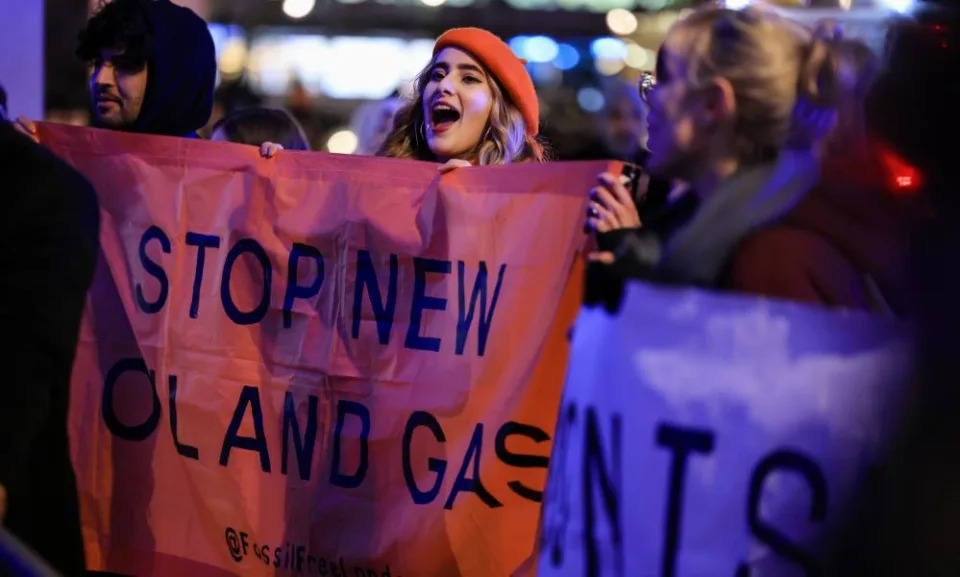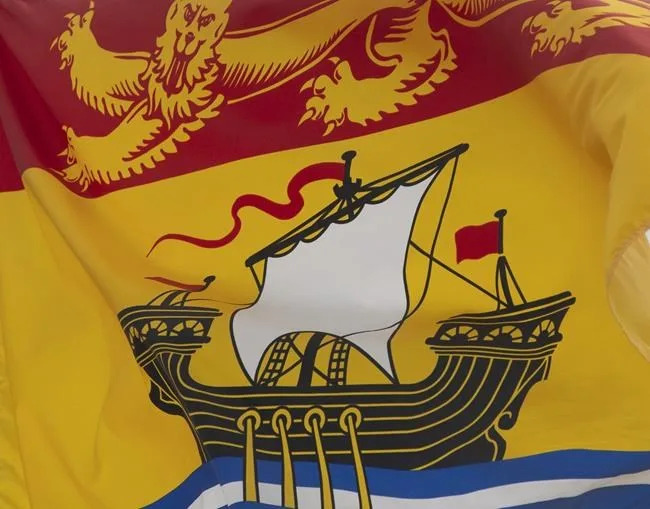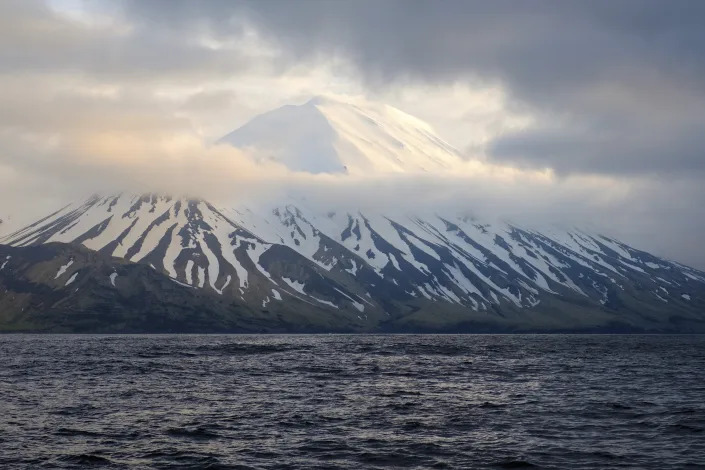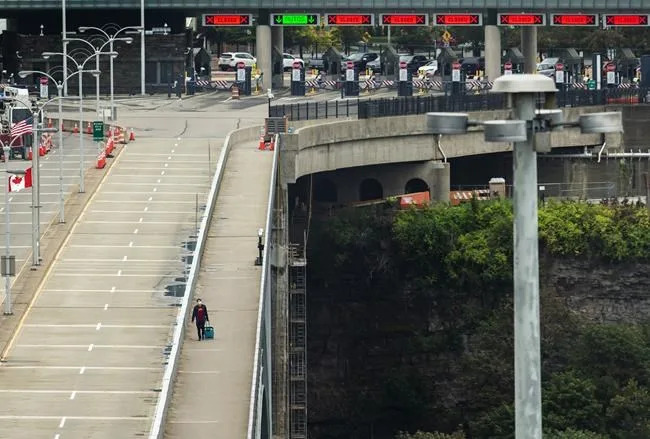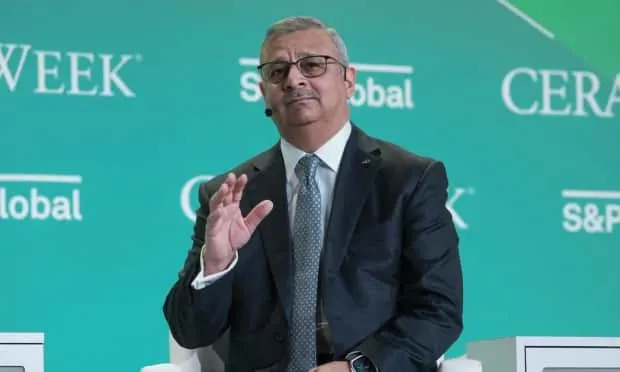Shell slammed for ‘outrageous’ pay and bonuses package of up to £21m for ex-boss
Holly Williams, PA Business Editor
Thu, 9 March 2023
Shell has fuelled calls for a higher windfall tax on the sector after the oil giant revealed that its ex-boss saw his pay package soar to £9.7 million last year and is in line for further potential payouts of more than £11 million.
The company’s annual report showed that former chief executive’s Ben van Beurden’s pay jumped by 53% in 2022, including a £2.6 million annual bonus and a £4.9 million long-term shares award on top of his £1.4 million annual salary.
Mr van Beurden – who was replaced by Wael Sawan at the start of 2023 – is also set to pick up another £2.13 million this year for advisory work and loss of office, plus a maximum possible £1.8 million pro-rata bonus dependent on company performance, as well as a potential £7.4 million in long-term awards for 2021 and 2022 share plans.
It comes after the oil giant posted a record 84.3 billion US dollars (£71.1 billion) in core profit for 2022 as it benefited from soaring energy prices, branded “obscene” at the time amid heavy criticism over the amount of tax paid by the group.
Liberal Democrat leader Sir Ed Davey condemned the pay package as “outrageous” and called for an increase in windfall taxes on the sector.
He said: “It is outrageous that oil and gas bosses are raking in millions in bonuses while families struggle to heat their homes.
“Rishi Sunak’s refusal to properly tax these eye-watering bonuses and record profits is mind-boggling and shows how out of touch he is.
“It is completely unfair at a time when the Conservative Government is choosing to put people’s energy bills up.
“Whether it is executive bonuses or soaring profits, the money being made out of (Russian President Vladimir) Putin’s illegal war should be helping struggling families, not oil and gas barons.”
Non-governmental organisation (NGO) Global Witness said Mr van Beurden’s 2022 pay package is 294 times the UK’s median salary of £33,000.

Ben van Beurden was chief executive of Shell for nearly a decade (Daniel Leal-Olivas/PA)
Alice Harrison, fossil fuels campaign leader at Global Witness, said: “Shell’s CEO earnt in one year what a typical UK worker would earn in six lifetimes.”
“It’s a sign of just how broken our energy system is,” she added.
The NGO is urging the Government to change the windfall tax on the oil and gas sector to also cover executive bonuses.
“We’re calling on the UK Government to implement a people-first windfall tax in next week’s Spring Budget which includes executive bonuses, and to ensure a rapid transition to homegrown renewable energy sources that are cleaner and cheaper than oil and gas, and better for energy security,” Ms Harrison said.
BP is also expected to publish its annual report on Friday, which is set to reveal multimillion-pound bonuses for its boss, Bernard Looney.
The spotlight has been thrown on energy firms after a record-breaking set of annual results from the sector, which stoked controversy given the cost-of-living crisis affecting firms and businesses.
A spokesman for Shell said the former chief executive’s pay package is “considered the appropriate quantum for running a group of Shell’s scale and complexity”.
He said: “The CEO’s remuneration package is reviewed carefully on an annual basis against a range of UK and international companies, to ensure reward packages are appropriately positioned against market.”
He added: “We fully appreciate the difficulties that the cost-of-living crisis is causing many people across the world.
“Shell are taking steps to address it, such as doubling the hardship fund for vulnerable customers of our UK retail energy business.”
The group’s annual report also showed that Mr Sawan – Shell’s former head of gas and renewables – was appointed on a £1.4 million annual salary, in line with his predecessor, plus a potential annual bonus worth £1.75 million, or 125% of salary, and long-term shares worth up to a maximum potential of £4.2 million, or 300% of salary.
Holly Williams, PA Business Editor
Thu, 9 March 2023
Shell has fuelled calls for a higher windfall tax on the sector after the oil giant revealed that its ex-boss saw his pay package soar to £9.7 million last year and is in line for further potential payouts of more than £11 million.
The company’s annual report showed that former chief executive’s Ben van Beurden’s pay jumped by 53% in 2022, including a £2.6 million annual bonus and a £4.9 million long-term shares award on top of his £1.4 million annual salary.
Mr van Beurden – who was replaced by Wael Sawan at the start of 2023 – is also set to pick up another £2.13 million this year for advisory work and loss of office, plus a maximum possible £1.8 million pro-rata bonus dependent on company performance, as well as a potential £7.4 million in long-term awards for 2021 and 2022 share plans.
It comes after the oil giant posted a record 84.3 billion US dollars (£71.1 billion) in core profit for 2022 as it benefited from soaring energy prices, branded “obscene” at the time amid heavy criticism over the amount of tax paid by the group.
Liberal Democrat leader Sir Ed Davey condemned the pay package as “outrageous” and called for an increase in windfall taxes on the sector.
He said: “It is outrageous that oil and gas bosses are raking in millions in bonuses while families struggle to heat their homes.
“Rishi Sunak’s refusal to properly tax these eye-watering bonuses and record profits is mind-boggling and shows how out of touch he is.
“It is completely unfair at a time when the Conservative Government is choosing to put people’s energy bills up.
“Whether it is executive bonuses or soaring profits, the money being made out of (Russian President Vladimir) Putin’s illegal war should be helping struggling families, not oil and gas barons.”
Non-governmental organisation (NGO) Global Witness said Mr van Beurden’s 2022 pay package is 294 times the UK’s median salary of £33,000.

Ben van Beurden was chief executive of Shell for nearly a decade (Daniel Leal-Olivas/PA)
Alice Harrison, fossil fuels campaign leader at Global Witness, said: “Shell’s CEO earnt in one year what a typical UK worker would earn in six lifetimes.”
“It’s a sign of just how broken our energy system is,” she added.
The NGO is urging the Government to change the windfall tax on the oil and gas sector to also cover executive bonuses.
“We’re calling on the UK Government to implement a people-first windfall tax in next week’s Spring Budget which includes executive bonuses, and to ensure a rapid transition to homegrown renewable energy sources that are cleaner and cheaper than oil and gas, and better for energy security,” Ms Harrison said.
BP is also expected to publish its annual report on Friday, which is set to reveal multimillion-pound bonuses for its boss, Bernard Looney.
The spotlight has been thrown on energy firms after a record-breaking set of annual results from the sector, which stoked controversy given the cost-of-living crisis affecting firms and businesses.
A spokesman for Shell said the former chief executive’s pay package is “considered the appropriate quantum for running a group of Shell’s scale and complexity”.
He said: “The CEO’s remuneration package is reviewed carefully on an annual basis against a range of UK and international companies, to ensure reward packages are appropriately positioned against market.”
He added: “We fully appreciate the difficulties that the cost-of-living crisis is causing many people across the world.
“Shell are taking steps to address it, such as doubling the hardship fund for vulnerable customers of our UK retail energy business.”
The group’s annual report also showed that Mr Sawan – Shell’s former head of gas and renewables – was appointed on a £1.4 million annual salary, in line with his predecessor, plus a potential annual bonus worth £1.75 million, or 125% of salary, and long-term shares worth up to a maximum potential of £4.2 million, or 300% of salary.
August Graham, PA Business Reporter
Thu, 9 March 2023

The UK’s biggest oil and gas producer said it had seen a nearly eight-fold increase in its profit “all but wiped out” as the Government’s windfall tax on energy companies kicked in.
Harbour Energy said it would pay close to 1.5 billion dollars (£1.3 billion) due to the new rules, which were put in place last May amid surging energy prices.
As a result, and thanks to the company’s normal tax bill, Harbour’s pre-tax profit of 2.5 billion dollars (£2.1 billion) was reduced to eight million dollars (£6.7 million) after tax.
“The UK Energy Profits Levy, which applies irrespective of actual or realised commodity prices, has disproportionately impacted the UK-focused independent oil and gas companies that are critical for domestic energy security,” chief executive Linda Cook said.
“For Harbour, the UK’s largest oil and gas producer, it has all but wiped out our profit for the year.”
Harbour has said that it plans to cut both jobs and investment due to the windfall tax, despite a loophole in the tax which would have allowed it to write off much of any new investments in the North Sea.
But it did not stop Harbour from handing cash to its investors, clubbing through 600 million dollars (£504 million) in shareholder distributions in 2022.
The windfall tax – officially called the Energy Profit Levy – was introduced last year to ensure that oil and gas producers in the UK’s North Sea were not able to massively benefit from the war in Ukraine.
It has been less impactful for oil and gas giants BP and Shell because most of their production comes from outside the UK, so is not covered by the tax.
But Harbour Energy is largely focused on extracting oil and gas off British shores, so a much larger percentage of its profits were impacted by the levy.
Harbour said it had produced an average of 208,000 barrels of oil equivalent every day in 2022, up 19% from the year before. Extracting each barrel cost 13.90 dollars (£11.69), a reduction of 8.5%.
“In our first full year as a publicly listed company, Harbour delivered materially higher production which – together with improved margins – enabled us to continue to deleverage and make material shareholder distributions,” Ms Cook said.
“We further developed our net-zero strategy, setting ourselves an interim target, and built significant momentum in our flagship Viking CCS project. Most importantly, we achieved all of this while improving our safety record.”
But it did not stop Harbour from handing cash to its investors, clubbing through 600 million dollars (£504 million) in shareholder distributions in 2022.
The windfall tax – officially called the Energy Profit Levy – was introduced last year to ensure that oil and gas producers in the UK’s North Sea were not able to massively benefit from the war in Ukraine.
It has been less impactful for oil and gas giants BP and Shell because most of their production comes from outside the UK, so is not covered by the tax.
But Harbour Energy is largely focused on extracting oil and gas off British shores, so a much larger percentage of its profits were impacted by the levy.
Harbour said it had produced an average of 208,000 barrels of oil equivalent every day in 2022, up 19% from the year before. Extracting each barrel cost 13.90 dollars (£11.69), a reduction of 8.5%.
“In our first full year as a publicly listed company, Harbour delivered materially higher production which – together with improved margins – enabled us to continue to deleverage and make material shareholder distributions,” Ms Cook said.
“We further developed our net-zero strategy, setting ourselves an interim target, and built significant momentum in our flagship Viking CCS project. Most importantly, we achieved all of this while improving our safety record.”


